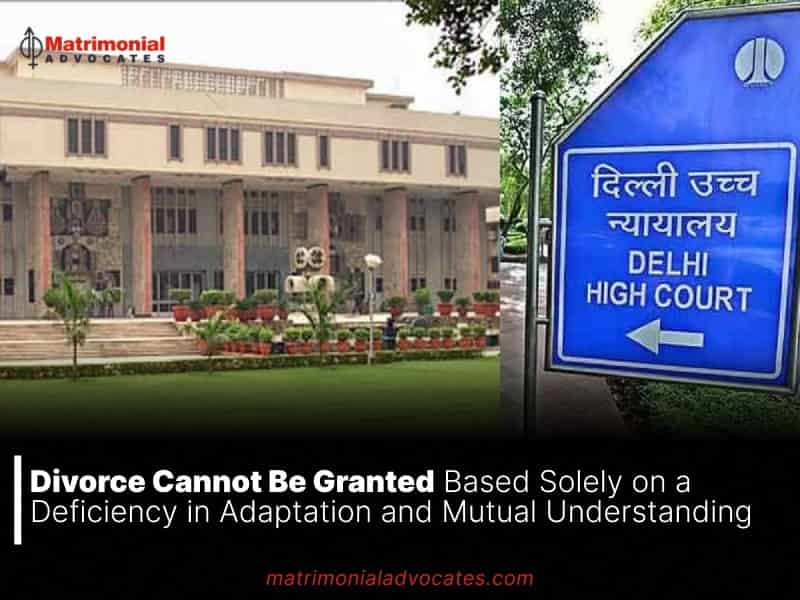
Recently, the High Court of Delhi upheld the rejection of a divorce petition in a marital dispute involving Gaurav Gulati, the petitioner, and Gita Pravin, the defendant. The petitioner had initiated legal proceedings under Sections 13(1)(ia) and 13(1)(ib) of the Hindu Marriage Act, 1955, citing allegations of cruelty and abandonment against the respondent. In the judgment announced on March 1, 2024, Justice Neena Bansal Krishna and Justice Suresh Kumar Kait carefully examined the evidence presented by both parties. The court highlighted the petitioner’s claims of mistreatment and the respondent’s refusal to live together, as well as the respondent’s counterarguments regarding the petitioner’s conduct.
“Unfortunate are the matrimonial disputes where the fountainhead of friction inter se the spouses is mere lack of adjustment, understanding, and the will to stay together,” remarked Justices.
Following an extensive examination, the court detected discrepancies in the allegations put forth by the petitioner and recognized purported efforts by the respondent to reconcile, purportedly declined by the petitioner. “The court declared that none of the claims made by the petitioner/husband were adequately substantiated.”
Regarding the accusation of desertion, the court observed that the petitioner failed to furnish ample evidence to prove that the respondent willingly left the matrimonial home without justifiable cause. “The bench remarked that the petitioner has not succeeded in proving the allegation that the respondent deserted him.”
Despite acknowledging the irretrievable breakdown of the marriage, the court emphasized the principle under Section 23(1)(a) of the Hindu Marriage Act, 1955.“To grant a Divorce in the present case would be to add a premium to the recalcitrant and unreasonable conduct of the appellant,” concluded the court.
In conclusion, the High Court upheld the decision to dismiss the divorce petition, stating that it “does not call for any interference.”





